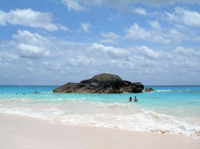Bermuda has a large expat population that benefits greatly from the booming business sector and high pay packages. This British Overseas Territory is also a place of scenic natural surroundings and provides a safe living environment to its residents. Bermuda’s culture and lifestyle has many similarities with countries like the United States, Canada and the United Kingdom. But relocating to a new destination often poses a few challenges. To help prepare you for the change, here are some things you should know before moving to Bermuda.No rental cars
Bermuda consists of a collection of large and small islands. If you want to explore the region, don’t bother trying to find a rental car company – because you won’t find one. Bermudan law prohibits anyone from driving a car without a Bermudan driver’s license; and only residents can obtain a driver’s license. This is the reason there are no rental car companies here. Bermuda is also a rather small region and attracts a huge number of tourists each year. Rental cars on the roads would only lead to further congestion. Most tourists prefer to rent scooters or mopeds to get around the islands. Another great way to explore Bermuda is by boat. You can hire a boat at any of the docks in the capital city of Hamilton and take a cruise around the idyllic islands.
Expensive healthcare
Bermuda does not have a publicly funded healthcare system. Even senior citizens are not covered under any national healthcare program. There is also no reciprocal healthcare arrangement in place with other countries. Even though Bermuda is a British Overseas Territory, there are no reciprocal health services for travellers. This makes healthcare in the region an expensive affair. Those who visit Bermuda for reasons such as vacation, business or family, need to take out health coverage in their home countries to protect against any medical emergencies that may occur during their stay.
However, the law does instruct all employers to provide local health insurance to their employees, whether local or foreigner.
Taxes
Jobs in Bermuda do offer high salaries and many expats can afford a high quality lifestyle. The region has also become a tax haven for the wealthy since there are is no direct income tax, capital gains tax or wealth tax, although expats living and working in Bermuda may need to pay taxes in their home countries. There is also no VAT (Value Added Tax) on goods and services. However, Bermuda has one of the highest costs of living in the world. Hardly any products are produced here, so everything is imported from other countries. This results in high custom duties, labor costs and transport costs. Along with expensive insurance, there are other costs to bear such as utility bills, vehicle charges and rent. Food and groceries also cost more than they do in the United States.
Drinking water
There are no freshwater sources in Bermuda and the island tackles the problem of water scarcity in a unique way. The roofs over the houses are designed to funnel rainwater into large containers that are connected to household faucets. The roofs have a series of grooves through which the water passes, after which is runs over a bleached limestone surface before getting collected in underground cisterns. There is even a law that mandates each household to collect at least 80 percent of rainwater that descends upon the roof.
Culture
When in Bermuda, you can look forward to a few uniquely Bermudan cultural traditions. The island celebrates most of the common festivals and cultural activities, but also has a few that especially reflect its heritage. One of these is Bermuda Day, celebrated on May 24th each year. There are celebrations in Hamilton where crowds of locals, residents and tourists gather. The festivities include parades featuring floats and Gombey dancers. The Gombey is an iconic and unique performance art of Bermuda involving vibrant masquerade, dancing and drumming. The day also marks the start of summer and Bermudians ritually have their first swim of the year. Another important event on the island is Easter, as that’s when the kite flying begins. Building and flying geometric-shaped kites is a much-loved tradition involving Bermudans of all ages.

